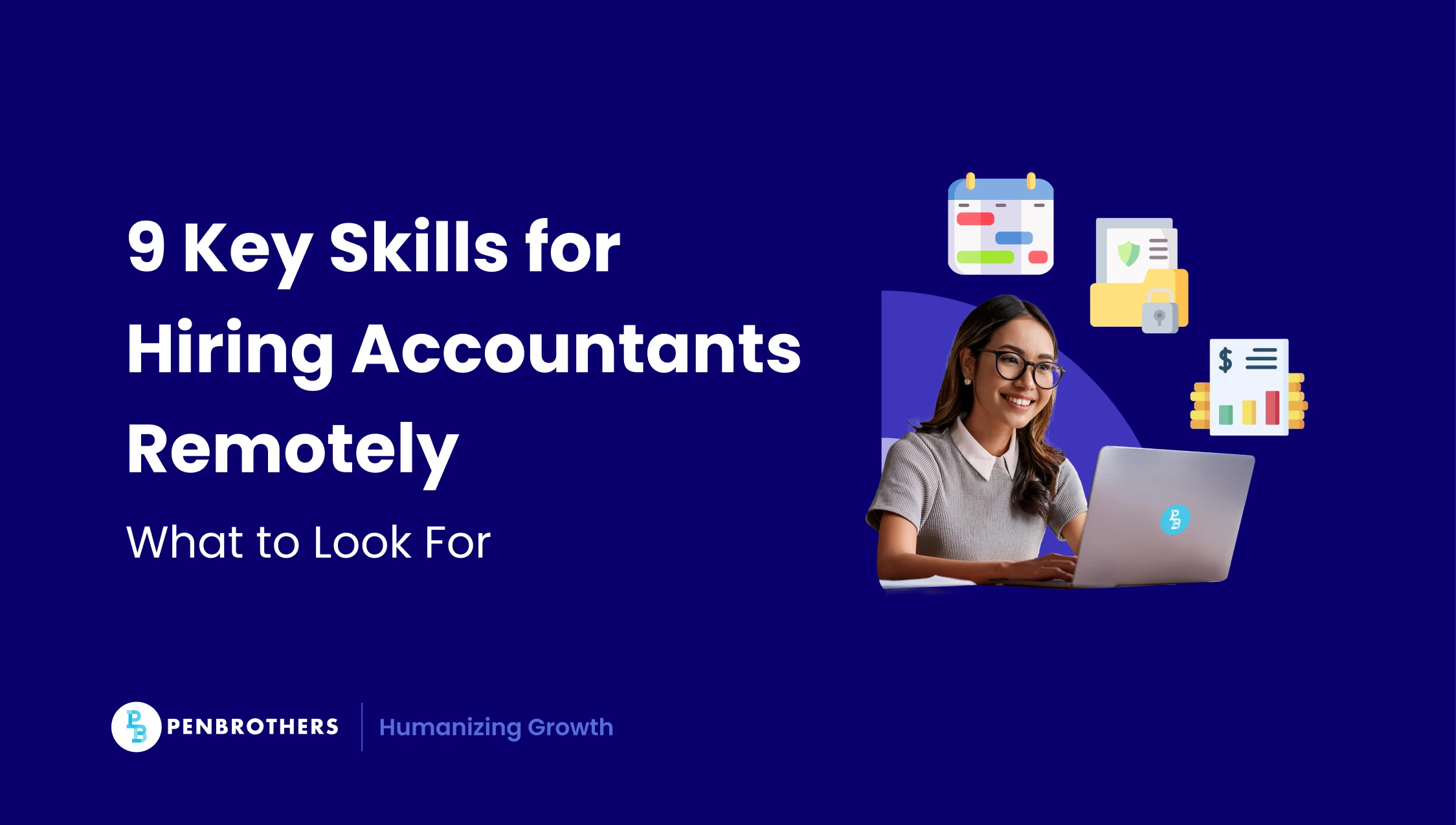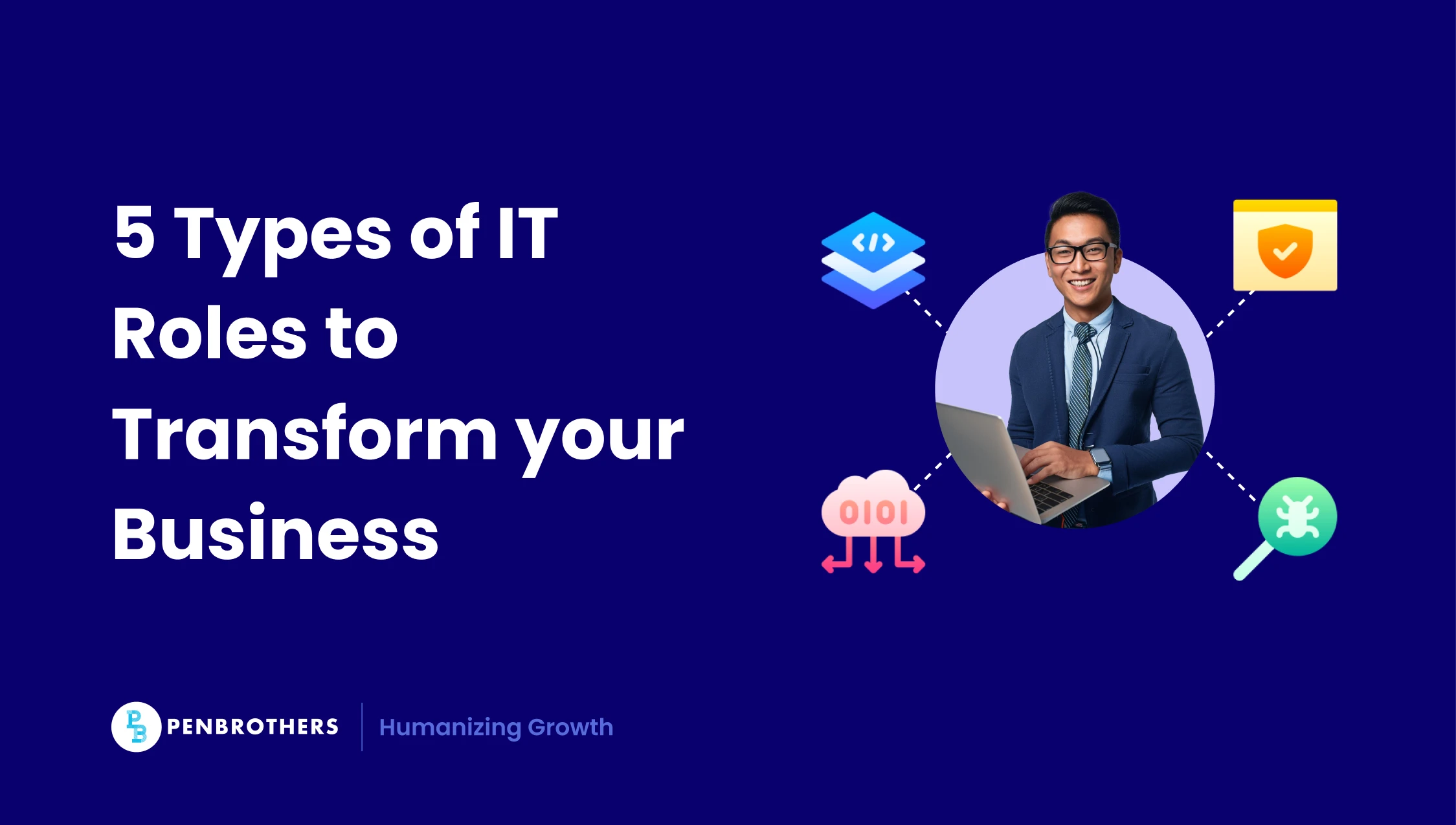What's Inside?
9 Key Skills for Hiring Accountants Remotely: What to Look For

In today’s digital age, hiring accountants remotely has become a viable and often preferred option for many businesses. The flexibility and cost-efficiency of this work set-up makes it a strategic move. However, ensuring that your remote accountants excel requires focusing on essential skills and qualifications. This article delves into the necessary traits and expertise that guarantee efficient remote accounting services.
1. Technical Proficiency in Accounting Software
One of the most critical skills for remote accountants is technical proficiency in accounting software. Familiarity with tools such as QuickBooks, Xero, and Sage is essential. Remote accountants must be adept at using these platforms to manage financial records, generate reports, and perform other accounting tasks efficiently. Ensure that your candidates have a strong background in these tools and can quickly adapt to any new software your company uses. Additionally, providing access to online training and resources can help them stay updated with the latest software developments and features.
2. Strong Communication Skills
Effective communication is vital for remote work. Remote accountants must be able to convey complex financial information clearly and concisely to non-accounting staff and management. This includes both written and verbal communication skills. Look for candidates who can demonstrate their ability to explain financial concepts in a way that is easy to understand. Regular virtual meetings and the use of collaborative tools can enhance communication and ensure that everyone is on the same page.
3. Consistent Attention to Details
Accuracy is paramount in accounting. Remote accountants must exhibit a high level of attention to detail to ensure that financial records are accurate and error-free. This trait is crucial for maintaining the integrity of financial data and avoiding costly mistakes. During the hiring process, assess candidates’ attention to detail through practical tests or by reviewing their previous work. Implementing double-checking procedures and regular audits can also help maintain accuracy in financial reporting.
4. Self-Motivation and Time Management
Remote work requires a significant degree of self-motivation and excellent time management skills. Remote accountants must be able to work independently, set their own schedules, and meet deadlines without direct supervision. Evaluate candidates’ ability to manage their time effectively and stay motivated in a remote work environment. Providing clear expectations, regular feedback, and performance metrics can help remote accountants stay on track and motivated.
5. Problem-Solving Abilities
Accounting often involves solving complex financial problems. Remote accountants must possess strong problem-solving skills to identify issues, analyze data, and develop effective solutions. Look for candidates who can demonstrate their analytical thinking and problem-solving abilities through examples from their previous experience. Encouraging continuous learning and providing access to problem-solving resources can enhance their capabilities.
6. Adaptability and Flexibility
The remote work environment can be dynamic and unpredictable. Remote accountants must be adaptable and flexible to handle changing priorities and new challenges. This includes being open to learning new skills and adjusting to different working conditions. Assess candidates’ adaptability by asking about their experiences with change and how they have managed it in the past. Providing opportunities for cross-training and professional development can help them stay adaptable and resilient.
7. Integrity and Confidentiality
Trust is a cornerstone of the accounting profession. Remote accountants must demonstrate a high level of integrity and a commitment to maintaining the confidentiality of financial information. Ensure that your candidates have a strong ethical foundation and a history of handling sensitive data with care. Implementing robust data security measures and conducting regular ethics training can reinforce the importance of integrity and confidentiality.
8. Continuous Learning and Professional Development
The field of accounting is constantly evolving. Remote accountants must be committed to continuous learning and professional development to stay current with industry trends and regulatory changes. Look for candidates who actively pursue additional certifications, attend workshops, and engage in other forms of professional growth. Providing access to online courses, industry publications, and professional networks can support their ongoing development.
9. Cultural Fit and Team Collaboration
fEven though remote accountants work independently, they still need to fit into your company’s culture and collaborate effectively with your team. Assess candidates’ cultural fit by discussing your company’s values and work environment. Additionally, evaluate their ability to work collaboratively with team members, even in a remote setting. Utilizing collaborative tools and fostering a sense of community through virtual team-building activities can enhance team cohesion and cultural alignment.
In countries like the Philippines, accountants are fit culturally in key locations like the United States, United Kingdom, Australia, Singapore. The collaboration with Filipino accountants working remotely is also one that exemplifies collaboration due to the immersion of these professionals with the Western culture.
Hire Expert Filipino Accountants Remotely in Less Than 1 Month
Hiring accountants remotely offers numerous benefits, but it requires careful consideration of specific skills and traits. By focusing on technical proficiency, communication skills, attention to detail, self-motivation, problem-solving abilities, adaptability, integrity, continuous learning, and cultural fit, you can ensure that your remote accountants excel in their roles. For more information on hiring remote accountants, we can help you.





